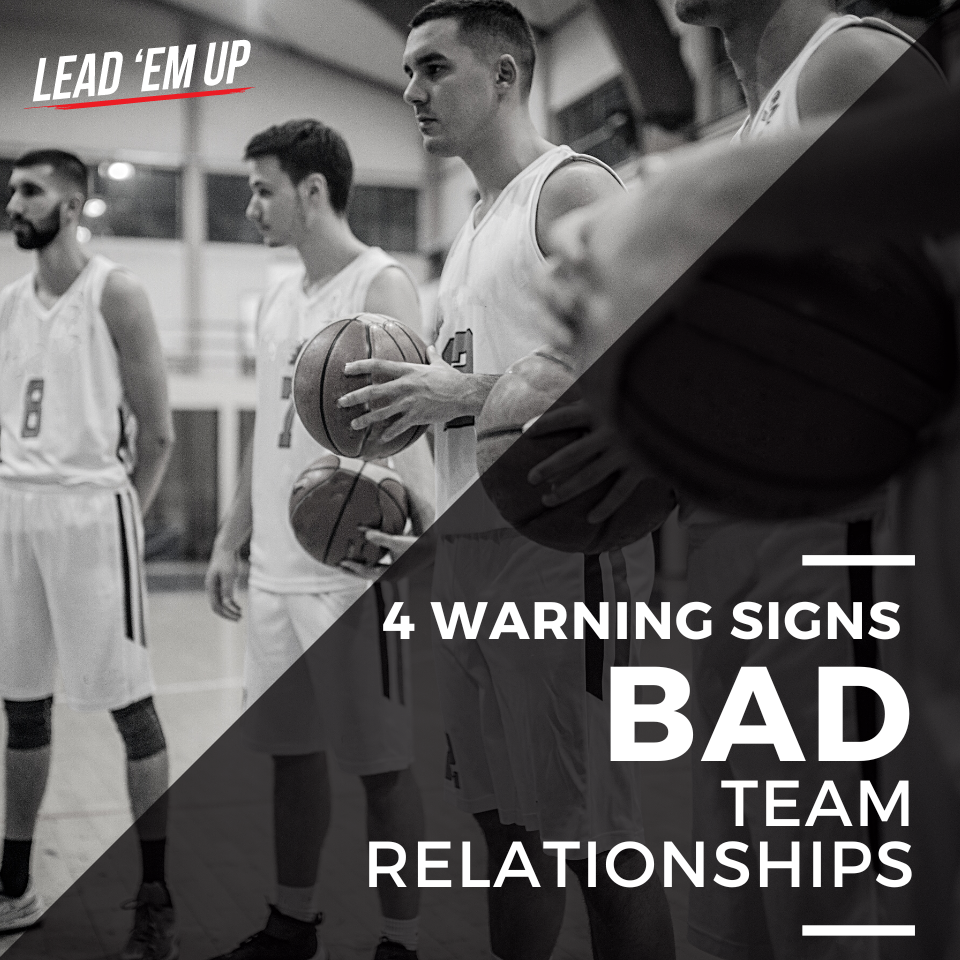Home / Blog / Relationships /

Teams go as relationships go. To become the best team you’re capable of becoming, you must have strong relationships. If you’re not monitoring the quality of your team’s relationships, things will go downhill fast.
Here are four warning signs of bad relationships you should be on the lookout for.
Separate Ways
Teams with bad relationships have low engagement. Once practice or games are over, everyone goes their separate ways. Players show up late to practice on teams with bad relationships. Players will also completely miss practice and leave practice early. On teams with bad relationships, players will often distance themselves from the team and become less involved in team chats. If you notice any of these trends chances are you have bad relationships throughout the team.
Poor Communication
Poor communication amongst a team is a clear sign of bad relationships. When communication is poor players will struggle with the ability to speak to teammates and address any problems. Players also struggle to listen to their teammates. Communication is a two-way street, and if there is any break in communication it shows a lack of trust. Teams with healthy communication feel free to speak openly and honestly with teammates because they know it will be received well. If your team struggles with communication, you must work to improve their relationships first.
Too Defensive
When bad relationships are present team members become defensive. Players let ego and pride come in the way of doing what’s best for the team. If a teammate or a coach tries to offer some guidance or leadership, it’s met with defensiveness. Defensive players will not accept responsibility and lack any form of accountability. This defensiveness all stems from a lack of connection between team members. When team members are connected, they are more approachable and coachable.
An Island
One of the clearest signs of bad relationships on a team is when players feel like they’re all alone on an island. They feel like no one has their back. The team looks like no one has an invested interest in anyone besides themselves. Teams with bad relationships don’t have teammates looking out for each other or helping teammates become better. Players don’t get to experience a teammate leading them, hyping them up, or having their back during tough times. If your players aren’t helping with the development of their teammates, your team has bad relationships.
These four warning signs should cause us to act. When we see these warning signs, we need to be aware of them and respond accordingly. Knowing where, how & when to respond is a challenge for all team members and we’re here to help. In our Coaches Membership we have specific exercises to help you strengthen your team’s relationships, so you don’t experience the pain points discussed above.
Have fun and #LeadEmUp




